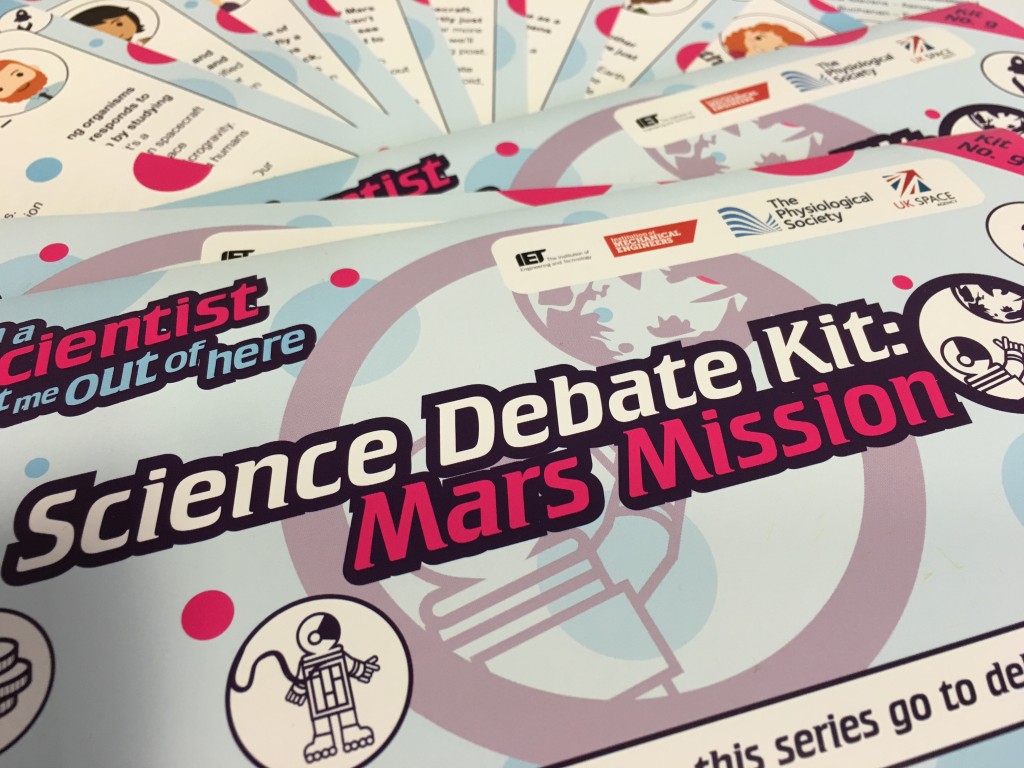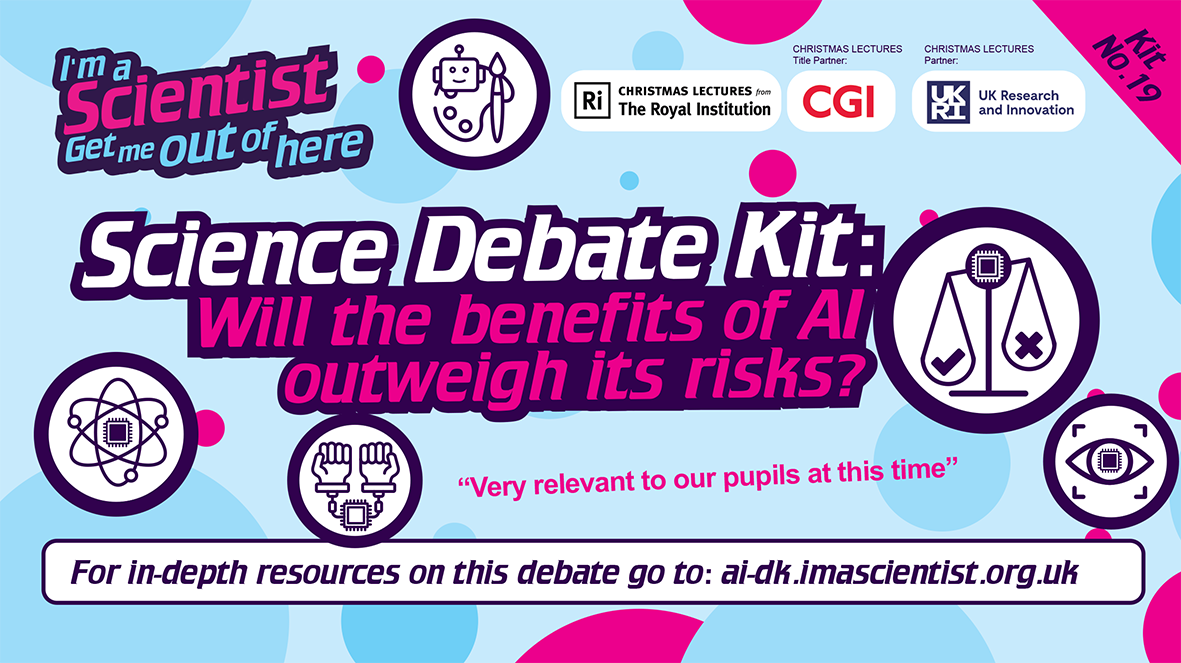 The Mars Mission Debate Kit asks the question:
The Mars Mission Debate Kit asks the question:
Should we send a human space mission to Mars?
The kit allows students to look at the argument from all sides; to explore the social, technological, physiological, and ethical issues around sending a human space mission to Mars.
All the facts in the Mars Mission Debate Kit have been researched. This page is populated with references and additional information relating to the kit.
How have your students’ opinions changed?
The aim of the kit is to explore the social, ethical, technological, and physiological issues around sending a human space mission to Mars. We’ve created an online survey to help you track your how your students’ opinions change throughout the activity.
Find the online survey here and let us know how your students’ opinions change through the debate
Suggested extension activity
The eight characters in the Mars Mission Debate Kit each provide a different point of view on sending a human mission to Mars. Ask your students to consider any other view points which may not have been covered.
For example, how will our perception of ourselves as humans (or of the Earth as the cradle of life) change if we discover life on Mars or elsewhere?
Further reading and resources
National strategy: Space environments and human spaceflight (July 2015) (UK Space Agency)
This strategy will help ensure that existing investment is well targeted and will be a guide for future investment decisions, providing a framework for further activities.
ExoMars: Europe’s mission to Mars (UK Space Agency)
ExoMars consists of two missions that fall under the European Space Agency’s Aurora programme. The Aurora programme will develop important science whilst developing technologies that will lay the foundations for human exploration beyond low Earth orbit.
Mars mission heralds start of UK’s search for life on red planet (UK Space Agency)
The mission will see a UK-designed rover launched to the surface of the red planet in 2018.
NASA’s Journey to Mars (NASA)
NASA is developing the capabilities needed to send humans to an asteroid by 2025 and Mars in the 2030s – goals outlined in the bipartisan NASA Authorization Act of 2010 and in the U.S. National Space Policy, also issued in 2010.
Stephen Hawking – Why We Should Go Into Space [Video] (National Space Society)
Stephen Hawking speaks on “Why We Should Go Into Space” for NASA’s 50th Anniversary lecture series at George Washington University, April 2008.
More teaching activities and resources
UK Space Agency Principia Education Resources (UK Space Agency)
The UK Space Agency and its partners have put together a programme of education activities related to the Principia mission.
ESERO-UK Space STEM Resources (ESERO-UK)
ESERO-UK provides free resources, support and information for teachers to enhance the teaching and learning of STEM using space as a context.

